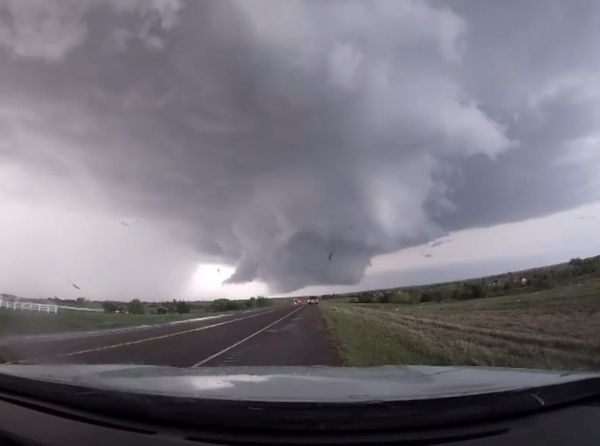
People often dream of small town life. It’s the idea of belonging, I think. My local supermarket, my post office, my bank and my chemist are in the same block. My newsagent is also my cafe. Every time I go to town, people can see where I go and who I meet. Life is conducted in a goldfish bowl.
Yet for some people it is possible to drown in plain sight. Social networks are tight and, while gossip is rife, no one actually tells you what people are saying about you. People don’t want to pry or cross personal boundaries.
It’s hard to access services without others finding out. Someone you know always works at the doctor’s surgery or the hospital or the baby health clinic or the bank or with the lawyer or the accountant.
It’s not hard to imagine that living in such a community with an abusive partner could be a trap. So it was something of a relief to hear the Forbes mayor, Phyllis Miller, cut to the chase. As the hand-wringing continued in this latest national WTF moment in the war against women, Miller described the added problem for rural women.
“It is not safe for women to live in rural and regional New South Wales. We are not safe. We cannot hide like you can in the metropolitan areas. Everybody knows everyone and they know where everyone is. So we are not safe,” she told ABC Breakfast.
It is a fact that living rurally increases the risk of intimate partner violence for women. Services are more sparse. Distance from family and friends is greater. Economic capacity is often lower.
All of the elements that create greater hurdles in other life services such as health, education, childcare, government support and transport in turn make domestic violence protection and support more challenging.
And while nobody talks about it much, there are cultural differences that make rural incidents volatile, more deadly and in some ways more pervasive.
Dr Freya McLachlan is a research fellow at the Centre of Excellence for The Elimination of Violence Against Women at Griffith University. She grew up in a small town in Queensland and has completed her PhD on intimate partner femicide, publishing some of the findings in The Rurality of Intimate Partner Femicide: Examining Risk Factors In Queensland.
McLachlan examined finalised and closed cases of homicide perpetrated by a male offender towards a female victim, by a partner or ex-partner in Queensland rural areas between 2006 and 2019. There happened to be exactly 100 cases that fit that criteria, though she says the true rate is likely greater.
She found a higher incidence in rural areas even though associated risk factors are similar between urban and rural cases. Those factors include previous violence against intimate partners, stalking, pending or actual separation, ownership of lethal weapons, substance use and mental illness.
There are a number of common rural themes – isolation, male bush culture and greater access to guns – that point to the need for unique solutions for the regions.
The isolation provided by greater space and distance provides cover. In country towns, McLachlan found perpetrators were less likely to bother hiding their actions. It means violence can be more severe and continue for longer without intervention.
Conversely, the goldfish bowl effect of small town living makes it easier to see if a woman is accessing domestic violence support services and that information can easily get back to the abuser. That increases the fear of seeking help.
Another key factor is the very male culture of the bush, long celebrated and interrogated in Australian history, myth and legend. While metropolitan culture may have shifted somewhat under the weight of diversity, the bush remains a very male place.
“A common finding in this research is that those living in rural areas are more likely to be tolerant of [intimate partner violence] due to values based on patriarchal thinking, such as victim blaming and expectations of women adhering to traditional gender roles,” McLachlan writes.
Essentially, there is greater pressure to fulfil the roles of wife and mother “over individual agency”. In conjunction with cultural expectations, limited employment opportunities exacerbated by lack of childcare increase the economic dependence on partners, including abusive ones. McLachlan uses the example of farms being handed down along male lines.
“That results in women being really reliant on male partners because they don’t have financial independence, they might not even own their own land or they may be living on the partner’s land so it’s really difficult for them to separate,” McLachlan says.
While Australians are rightly proud of their gun laws after the Port Arthur massacre, McLachlan found a statistically significant increase in women who die from gunshot wounds in rural areas compared with cities. It was the second highest cause of death behind sharp object wounds.
Even when guns are not used, McLachlan says the ownership of guns can amplify coercive control that may stop women from speaking up or leaving.
Finally, while there has been a lot of research from rural areas in the US and elsewhere, McLachlan’s Queensland review has not been replicated in other states. We simply don’t know what is happening elsewhere in the country because, McLachlan says, the data is incomplete.
“We do know there is more missing data in rural areas than urban areas,” she says.
In the lead-up to Mother’s Day in 2015, I wrote about the case of another regional woman, Miss Hart, who died on Anzac Day. She had a three-year-old child. At that time too the women of Brewarrina were angry and marched past the pubs and laid a wreath for the victim.
The same year, coroner Michael Barnes found farmer Geoffrey Francis Hunt shot his wife, Kim, and three children dead before taking his own life in the farm dam near Lockhart.
Domestic violence is a national issue that crosses geographic, demographic, racial and class boundaries. But, as is often the case, rural communities need particular solutions to deal with the challenges McLachlan and others have raised. Frontline funding, access to training and stricter gun control for known violent perpetrators is a good start.
If you or someone you know is affected by sexual assault or family violence, call 1800-RESPECT on 1800 737 732 or visit www.1800RESPECT.org.au







